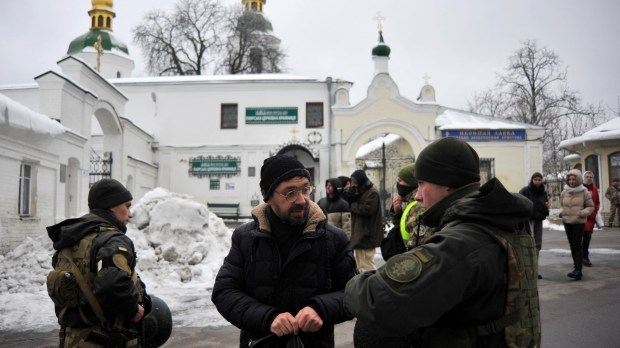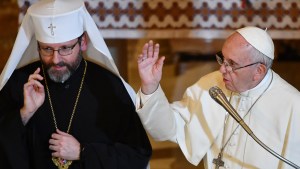Ukraine has begun investigating religious institutions – including a historic monastic complex in Kyiv – as places where Russian saboteurs and weapons might be hiding.
As Ukrainian armed forces continue trying to reclaim territory from Russian occupiers in the south and east of the country, security officials are working on another front – a religious one.
Ukrainian security officers on Tuesday raided the Monastery of the Caves in Kyiv, considered the birthplace of monastic life in Eastern Orthodoxy, saying they were trying to prevent its use as a center for pro-Russian activities, the New York Times reported.
Known as the Kyiv Pechersk Lavra, the 11th-century Monastery of the Caves is situated along the Dnipro River in central Kyiv. It is the headquarters of the Ukrainian Orthodox Church.
In spite of breaking with the Moscow Patriarchate in May, in the wake of Russia’s full-scale invasion of Ukraine in February, the Church is suspected by some to still have members who are partial to Moscow.
On Tuesday, officers of Ukraine’s state security service said in a statement that together with the police and national guard it carried out “counterintelligence” activities in the monastery. The officers checked whether the monastery’s premises were used to shelter saboteurs or store weapons, the statement said. The statement did not say whether anything was found and it was not clear if there were any arrests.
According to the Religious Information Service of Ukraine, the security service said the operation was being undertaken to “prevent the Lavra from being used as a ‘Russian world’ center.” The reference was to so-called Ruskii mir, an ideology promoted by both the Russian Orthodox Church and the Kremlin that considers Ukraine to be a natural part of Russia.
Security officials also said they had raided two other monasteries, as well as the headquarters for a local diocese, all in western Ukraine, the Times said.
Kremlin spokesman Dmitri Pescov reacted to the news, saying, “This can be regarded as another link in the chain of military actions against the Russian Orthodoxy.”
But even before the invasion, Russian agents acting inside Ukraine posed a threat. In the days after Putin launched his “special military operation” on February 24, several high profile Ukrainians had reportedly been targets of assassination, including the head of the Ukrainian Greek Catholic Church.



